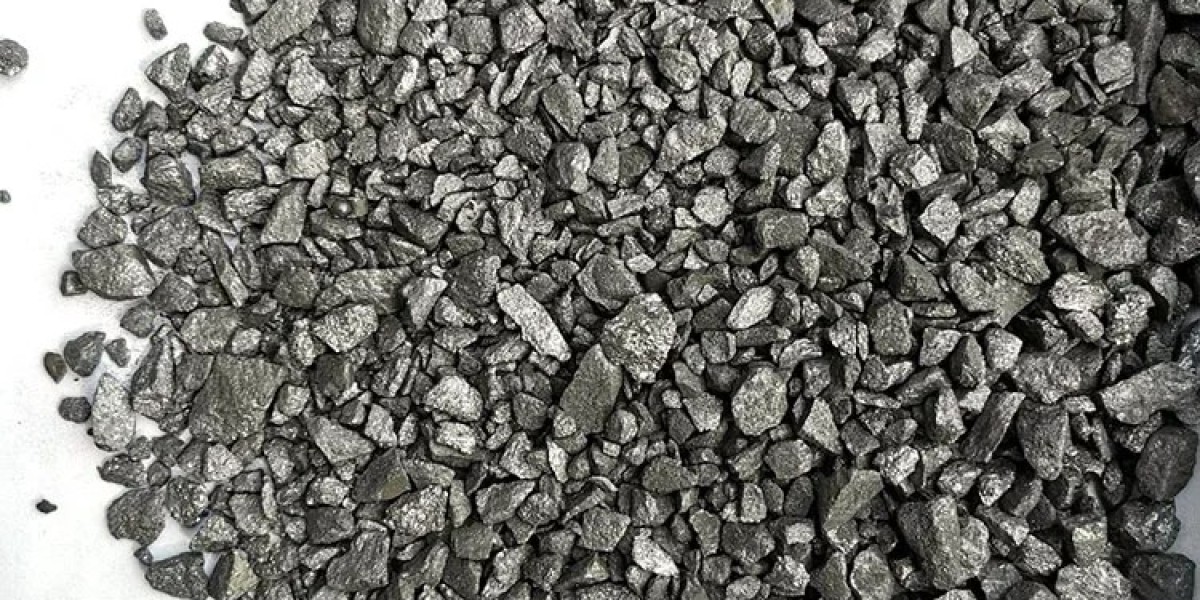In the world of metallurgy, the quest to enhance the properties of cast iron has led to the development of various inoculants. One such material that has gained significant traction in the foundry industry is the Silicon Particle Inoculant.This article delves into the advantages and industrial applications of this innovative material, providing insights into its chemical composition, methods of use, and its role in improving the quality of cast iron.
Introduction to Silicon Particles Inoculant
https://www.furnacecharge.com/Silicon-Particles-Inoculant.html, primarily composed of Ferrosilicon particles (FeSi75/FeSi72), is a critical material used in the foundry industry to enhance the properties of cast iron. It promotes graphitization, reduces the tendency of white mouth formation, and improves the morphology and distribution of graphite. This inoculant is known for its rapid effect, typically within 5-8 minutes after inoculation, and is applicable to various casting situations, including general contingency or late instantaneous inoculation.

Chemical Composition and Size Options
The chemical composition of Silicon Particles Inoculant is meticulously controlled to ensure optimal performance. The main models, FeSi 75 and FeSi 72, boast high silicon content, with the former containing a minimum of 75% silicon and the latter 72%. Both models have strict limits on aluminum, phosphorus, sulfur, carbon, and chromium, ensuring purity and consistency. The size of the particles can be customized to meet specific requirements, with standard sizes ranging from 0.2-1mm to 8-15mm.
Method of Use
The Silicon Particles Inoculant can be effectively incorporated into the casting process through two primary methods:
Inverted Inoculation: This method involves adding the inoculant to a bag, which is then poured into the molten iron to ensure even melting and distribution before pouring.
Addition Rate: The recommended addition rate is approximately 1.0-1.8% by weight of liquid iron, ensuring a balanced and effective inoculation.
Industrial Applications
The versatility of Silicon Particles Inoculant extends beyond the foundry industry, with applications in various sectors:
Steel Making: As a deoxidizer, Ferrosilicon is crucial in steel production, helping to remove oxygen and improve the steel's quality.
Alloy Elements Join Agent: Widely used in low alloy steel, non-ferrous metals, bearing steel, heat-resistant steels, and electrical silicon-steel, Ferrosilicon acts as an alloying agent to enhance the properties of these materials.
Reductant in Ferroalloy Production: In the production of ferroalloys and the chemical industry, Ferrosilicon serves as a reductant, facilitating the reduction of metal oxides to metals.
Inoculant and Nodulizer in Iron Industry: In the iron industry, Ferrosilicon particles inoculant not only acts as an inoculant but also as a nodulizer, promoting the formation of nodular graphite, which is desirable in many engineering applications.

Advantages of Silicon Particles Inoculant
The use of Silicon Particles Inoculant offers several advantages that make it an indispensable material in the foundry industry:
Improved Graphite Formation: By promoting graphitization, the inoculant enhances the formation of graphite, which is essential for the strength and ductility of cast iron.
Reduced White Mouth Tendency: The inoculant reduces the formation of white mouth, a defect characterized by a hard, brittle surface layer that can compromise the part's integrity.
Enhanced Morphology and Distribution of Graphite: The inoculant improves the morphology and distribution of graphite, leading to a more uniform and desirable microstructure in the cast iron.
Increased Eutectic Group Number: By increasing the number of eutectic groups, the inoculant refines the matrix structure, resulting in improved mechanical properties.
Rapid Effect: The inoculant's rapid effect within 5-8 minutes after inoculation allows for efficient casting processes without significant delays.

Conclusion
Silicon Particles Inoculant is a powerful tool in the foundry industry, offering significant advantages in the production of high-quality cast iron. Its ability to improve graphite formation, reduce defects, and enhance the overall properties of cast iron makes it an essential material for various industrial applications. With customizable options and a commitment to quality, Silicon Particles Inoculant is poised to play a crucial role in the advancement of metallurgical processes and the production of superior cast iron components.
WuXi HuanJiang Furnace Charge Co.,Ltd was established in 2000, located near the Beijing-Hangzhou Grand Canal with a long history in China. Mainly engaged in ferrosilica, fermanganese, rare earth magnesium silicon alloy, inoculant, Recarburizer, slag removal agent, iron sulfide, deoxidizer, thermal insulation covering agent, iron phosphorus, silicon carbide and other dozens of alloy materials.
Welcome to inquiry if you need to know more about silicon particles inoculant details or order wholesale.
E-mail:hjlllily@163.com








